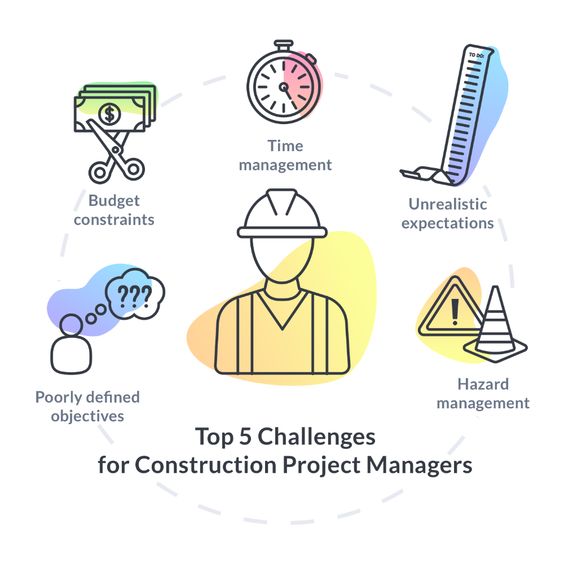Project management in construction refers to a systematic process of planning, organizing, executing, monitoring, and controlling construction projects from start to finish. The process involves managing various resources, including materials, labor, machinery, and finances, to achieve the project objectives within the specified time, quality, and budget. Project management is critical in construction because it helps to mitigate risks, increase efficiency, and deliver projects on time and within budget.
The Importance of Project Management in Construction
Construction projects involve numerous stakeholders, including architects, engineers, contractors, investors, and regulatory bodies. Each stakeholder plays a crucial role in ensuring the success of the project. Therefore, project management plays a vital role in ensuring that all the stakeholders work in synergy to achieve the project objectives. Effective project management helps to increase communication, coordination, and collaboration between the stakeholders, leading to a more efficient and productive construction process.
The Role of a Project Manager in Construction
The project manager is responsible for coordinating and managing all aspects of the construction project, from planning to execution. The project manager oversees the project team, which comprises architects, engineers, contractors, and other stakeholders. The project manager’s key responsibilities include developing project timelines and budgets, monitoring project progress, identifying and mitigating risks, and ensuring the project is completed on time and within budget. The project manager is also responsible for ensuring that the project complies with all legal and regulatory requirements.
The Project Management Process in Construction
The project management process in construction involves five key phases: initiation, planning, execution, monitoring, and closing. During the initiation phase, the project manager identifies the project objectives, stakeholders, and budget. In the planning phase, the project manager develops a project plan, including a timeline, budget, and resource allocation. In the execution phase, the project team carries out the construction work as per the project plan. During the monitoring phase, the project manager monitors project progress, identifies any issues, and takes corrective action. Finally, the closing phase involves wrapping up the project, including final inspections and ensuring all construction work is completed.
Types of Construction Project Management
There are several types of construction project management approaches, including traditional project management, design-build, construction management at-risk, and integrated project delivery. Traditional project management involves a sequential approach to project management, where the project team completes each phase before moving on to the next. Design-build is a project management approach where the design and construction teams work together from the beginning to ensure a more integrated approach.
Construction management at-risk involves hiring a contractor to manage the project, who is responsible for ensuring that the project is completed on time and within budget. Integrated project delivery is a collaborative approach to project management, where all the stakeholders work together from project inception to completion. This approach aims to increase communication and collaboration, leading to a more efficient and productive construction process.
Key Skills Required for a Project Manager in Construction
Effective project management in construction requires a range of skills, including leadership, communication, problem-solving, and time management. Project managers must have strong leadership skills to motivate and inspire their teams towards achieving the project objectives. They must also have excellent communication skills to ensure effective communication and collaboration between the various stakeholders. Problem-solving skills are also essential in construction project management, as issues can arise at any stage of the construction process.
Challenges Faced in Construction Project Management
Construction project management is not without its challenges. Some of the most common challenges include budget constraints, time constraints, and delays due to unforeseen circumstances such as adverse weather conditions. Additional challenges include legal and regulatory compliance issues, safety concerns, and challenges related to managing multiple stakeholders. Effective project management is critical in overcoming these challenges and ensuring the success of the construction project.
You might find these FREE courses useful
- What Is a Scrum Master (and How Do I Become One)?
- Scrum Master Certification: Scaling Agile and the Team-of-Teams
- Modalidades organizacionales ágiles en base a la MetodologÃa Scrum
- Project Practicum with Multiple Projects
The Future of Project Management in Construction
As the construction industry continues to evolve, project management techniques must also evolve to ensure that projects are completed efficiently and sustainably. One of the most significant trends in project management is the integration of technology to enhance project efficiency and productivity. Construction project managers are increasingly using tools such as building information modeling (BIM) to enhance project planning and management. Additionally, the adoption of sustainable construction practices is another area where project management plays an essential role in ensuring the long-term success of the construction project.
In conclusion, project management is a critical aspect of construction project success. Effective project management involves careful planning, resource allocation, and monitoring throughout the project’s lifecycle. Project managers must have a range of skills, including leadership, communication, and problem-solving, to ensure that construction projects are completed on time, within budget, and to the required quality standards.
